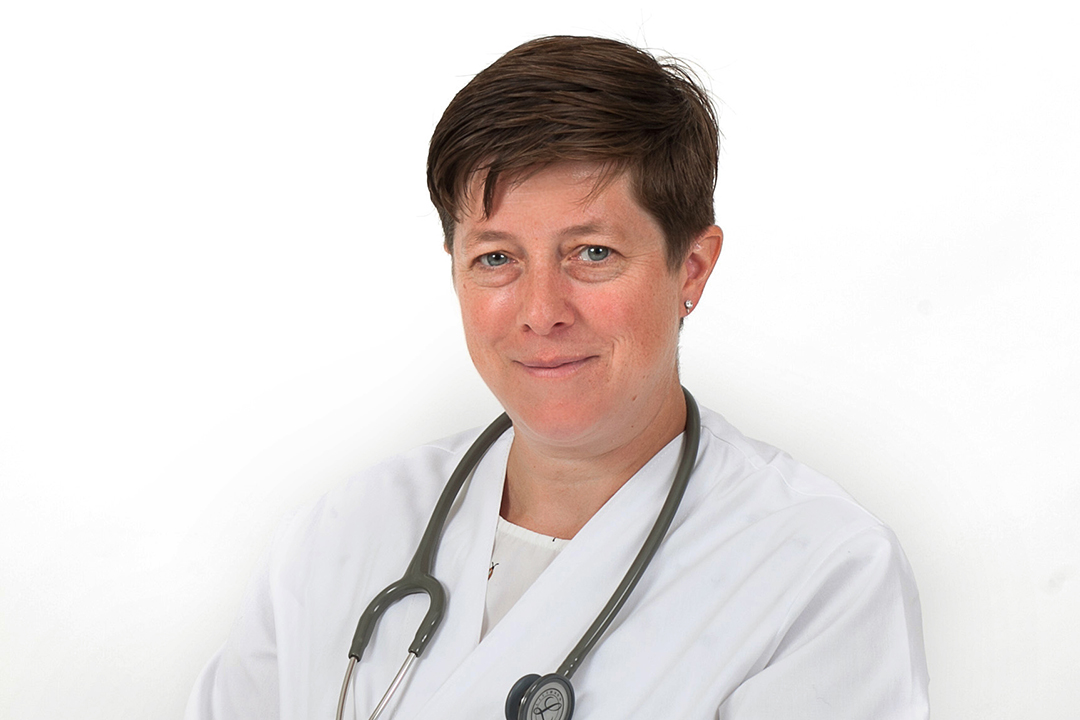
Alberta student happy to return to her ‘Plan A’
Jude Morton was only five years old when she told her mother that she wanted to be a veterinarian. It seemed like the ideal career for Morton, who grew up surrounded by pets and farm animals on her family’s home in Scotland. The daughter of a shepherd, she helped her father with lambing, feeding the lambs and ewes, and many other jobs.
By Lynne Gunville“My close association and love for animals drove a desire in me to work with them and care for them,” says Morton. “Through living on a farm, I met vets who came out to care for our animals, and I wanted to do what they did.”
But when Morton didn’t get accepted into veterinary school right after high school, she moved on to Plan B: a zoology degree at the University of Glasgow. That plan merged into an honours degree in physiology and eventually led to a PhD degree in neuroscience and biomedical systems.
“I guess it would be accurate to say that my interest in veterinary medicine influenced my decision to pursue a research career,” says Morton, whose PhD research focused on pharmacological targets in genital resistance vasculature. In simpler terms, could Viagra (trade name for the drug sildenafil) be applied to sexual dysfunction in women as well as in men?
Although Morton’s research concluded that the drug wasn’t a viable treatment for female sexual dysfunction, her investigations provided important information about the causes for dysfunction as well as possible therapy options.
Morton’s study also provided some of the groundwork for her postdoctoral research at the University of Alberta (U of A) where she investigated vascular function in pregnancy complications such as intrauterine growth restriction, preeclampsia and maternal aging.
“These types of studies are important for discovering which pathways would be worth pursuing to develop treatments for either human or animal medicine,” Morton explains. “That’s particularly important in pregnancy where there are two patients to consider, the mother and the fetus, and potential detrimental side effects may have a long-lasting and far-reaching impact.”
The studies also led to her working as a research associate in the U of A laboratory of Dr. Sandra Davidge where she continued her postdoctoral research while managing the laboratory of up to 15 people. During the 12-year experience, Morton had the chance to master many skills that are relevant to the veterinary profession and will help her as a veterinary student.
She also valued the opportunity to work with animal ethics committees — an area of keen interest to her. Through her involvement, she gained confidence in the processes and in Canada’s excellent standards that have been established to ensure animal welfare.
Morton eventually realized how much she enjoyed the practical aspects of research, particularly her work with the animal models, and she decided to go back to Plan A — a career in veterinary medicine.
She continued in her position at the lab while completing additional courses and job shadowing in a variety of veterinary practices that included an equine veterinary clinic, a holistic veterinary clinic and a mobile large animal practice.
Morton’s determination and hard work paid off in June when she was accepted in the Doctor of Veterinary Medicine (DVM) program at the Western College of Veterinary Medicine (WCVM). Since classes began in mid-August, Morton has been enjoying the challenge of learning new subjects such as anatomy.
While she would love to live in the country after graduation, Morton’s future plans are uncertain. Over the next four years, she hopes to discover a particular aspect of veterinary work that excites her the most.
“I’m most at home in the rural environment and culture, so I’m interested in a large or mixed animal practice, but I’m also open to opportunities to combine research with veterinary practice — perhaps something in food animal production,” says Morton.
“The most exciting part will be discovering options and opportunities that I may not even know about yet.”